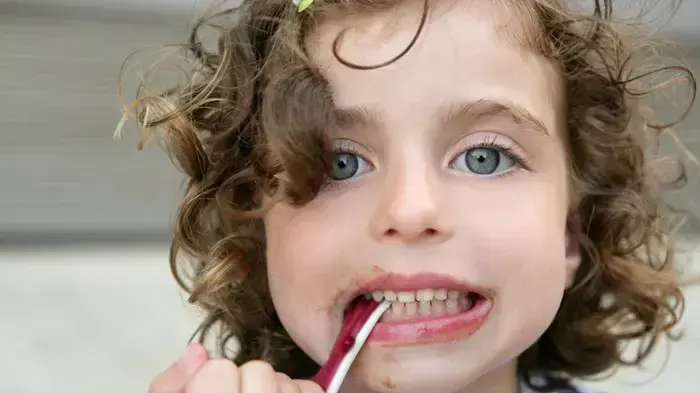Illustration (photo: ShutterStock)
Every year in preparation for Purim, the parents come for training at the clinic and present the dilemma.
On the one hand, a significant number of them have already experienced the relaxed approach that we are trying to bring to the discourse on food and eating, and have also had time to recognize the positive change that results from it.
On the other hand, it's almost impossible to avoid the automatic feelings of concern that arise with the thought of package deliveries full of sweets and snacks, which in some homes have made efforts to reduce their consumption.
Some parents may feel trapped.
This is a real reality - high consumption of ultra-processed food is not recommended, and is associated with negative results on our health.
However, another real reality is that excessive preoccupation with restricting eating, restraining the eating of our children and ourselves, and limiting access to food are also associated with negative results on our mental health, on our eating behaviors, and do not even prove themselves as strategies that promote healthy eating patterns over time, or maintaining weight and preventing obesity.
Why are we really worried about a few days of sweets?
The first step in order to create a consistent and clear example for our children is to ask ourselves honestly - why do we experience discomfort and worry when the conversation about the delivery of dishes comes up at home, or worse, when our children already come home smiling and excited, holding a basket rich in flavors and joy.
Do we care about their health?
Because, in a home where healthy eating habits are practiced on a regular basis, which also allow the eating of sweets and snacks, and yet are mainly based on a varied, rich and fresh diet - a deviation from the routine, such as the week of Purim, will not harm the children's health.
In homes and families where the "war on food" is daily, it is worth asking: is it worth pouring more fuel on the fire, and turning Purim into an enemy as well?
Moreover, is the battle over Purim the one that will really lead to the end of the war, and to the victory of the ideal eating habits, in the perception of the parents, over sweets and snacks?
The reason for the concern can also be something else: could it be that it is not so pleasant for us to see our children eat with great gusto foods that we perceive as "junk" and "garbage"?
Honestly, could it be that such eating is seen in our eyes as unregulated, out of control, uncivilized?
In such cases we would like to remind ourselves that parcel deliveries are actually the embodiment of culture and sociality.
They are practiced in our culture and tradition, full of emotion and love.
The worry can also be related to our personal past experiences.
Watching our children eat "forbidden" foods, meaning, those that we have defined as forbidden to us, can cause a lot of stress.
You are parents, but also human beings with a history, experiences and experiences that are unique only to you.
This is a logical and normal possibility, if you have been dealing with eating, weight and diet for years and decades, and you have developed a complicated love-hate system with food.
But even if you curse Haman's ears and send parcels in secret, and you are not a fan of holiday meals with plenty of food - is this the relationship you want and want to pass on to your children?
More in Walla!
"We have a lot of power to do damage": the most important article you will read about childhood obesity
To the full article
How do you do it differently?
First it is important to check what values you want to transfer.
Positive messages can be: we choose to enjoy food, holidays and events.
Food does not threaten us, because it is not our enemy.
It is charged only with the qualities we attribute to it.
As it is charged with worry, shame, regret, and guilt, so it can be charged with joy, excitement, family, and celebration.
Therefore, one should completely avoid attributing attributes and descriptions such as "garbage", "poison", "junk", "fattening" and "disgusting" to any type of food.
Attributing descriptions such as "garbage" or "poison" to food should be completely avoided.
Haman's ears (photo: Dror Einav)
make peace with food
Shahar Kochavi (photo: courtesy of those photographed)
It is very important not to wake the children when they have the sweets in hand, are celebrating joy with food and are excited by the stimulus they are currently holding.
It is too late to "save" the situation.
It represents your stress very well as parents, but ignores the stimuli, desires and desires of your children at those moments.
The expectation of your children's complete compliance with your instructions is understandable, however, it places your children torn between their desire and your wishes, and standing up to stimuli that, let's face it, are difficult for you to stand up to.
In recent years, efforts and guidelines have been made on behalf of the Ministry of Education and Health, as well as private initiatives of the schools and kindergartens regarding the maximum size and variety of the portion deliveries.
This is a welcome initiative that not only concerns the eating habits of our children and ourselves, but also reduces the expression of class differences, prevents harmful comparisons between children and teenagers and reduces excessive food waste.
Whether or not such initiatives are practiced in your children's settings, it would be correct to put together a meal delivery with your children that is not too rich and has a high financial cost, and that is not based entirely on packaged snacks and sweets.
This is an excellent opportunity to focus their efforts also on a written personal blessing, and on the creation of homemade pastries - thereby emphasizing the personal dedication, and the effort to please and give to another person.
In this way we will emphasize the social, festive and traditional layer of the delivery of the dishes, on top of that promoting consumption and buying.
If you would like to spend time and coordinate expectations with your children before the days of distributing the rations, a good option is to do it this way: "What fun Shapurim is coming! How nice that everyone respects everyone to make each other happy. After you receive the rations delivery, I want you to think with Which 5 candies do you want to be happy and celebrate. From the rest, we will make another package delivery and donate it - so that we can make more children happy."
In this way, we allowed the natural and understandable excitement from the holiday and also from the delivery of the dishes.
However, we did not ignore our desire to set limits and agree on them together with our children, and direct them to additional values that we would like to plant in their hearts.
Shahar Kochavi is a clinical dietitian, cognitive-behavioral psychotherapist and treats eating disorders.
The director of the clinic for nutrition and cognitive-behavioral therapy and an activist in the field of body image.
Works together with children and teenagers, and also with their parents - to make peace with food
health
parenthood
Children's nutrition
Tags
Mishloach manos
Purim
Sweets
Children's nutrition
Child obesity














